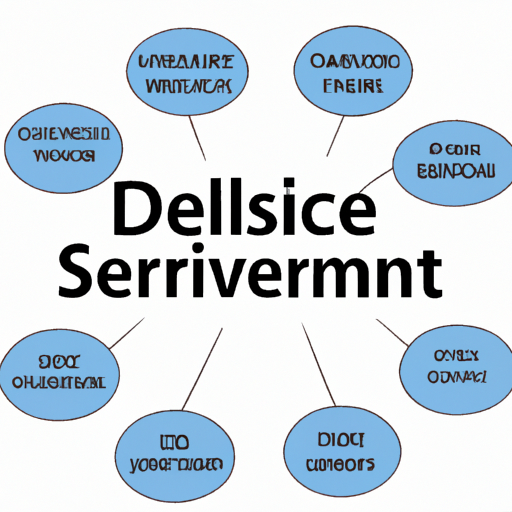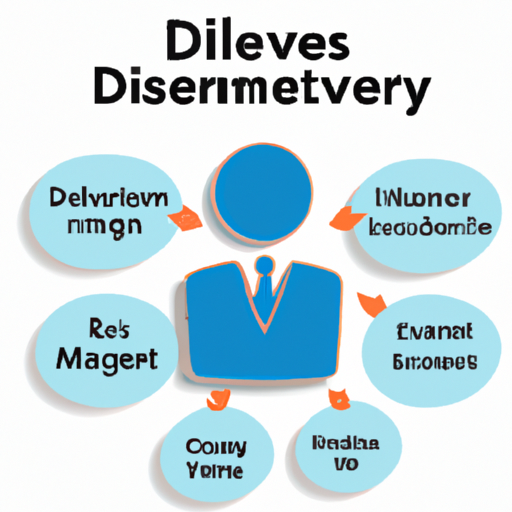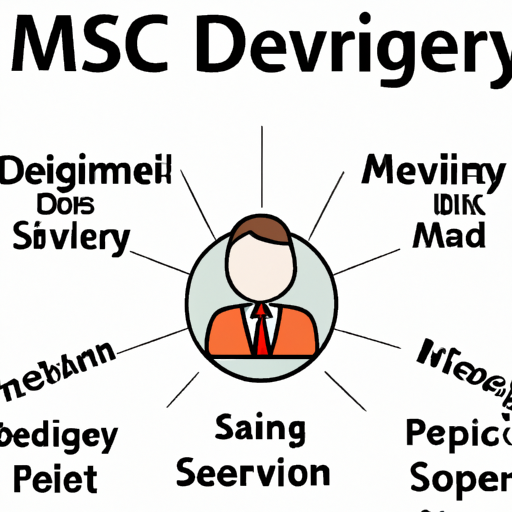Service Delivery Manager Job Description: Ensuring Seamless Delivery of Exceptional Services
In today’s dynamic business landscape, organizations strive to outperform their competitors by delivering exceptional products or services. Behind this success lies a crucial role – the Service Delivery Manager. Tasked with overseeing and optimizing the entire service delivery process, these professionals play a pivotal role in ensuring the seamless delivery of quality services to customers. This comprehensive article explores the job description of a Service Delivery Manager, shedding light on the key responsibilities, required skills, and qualifications necessary to excel in this critical role. Whether you are an aspiring Service Delivery Manager or seeking to understand this position better, this guide will provide invaluable insights into the world of service management.
Table of Contents
- Key Responsibilities of a Service Delivery Manager
- Required Skills and Qualifications for Service Delivery Managers
- Understanding the Importance of Customer Satisfaction and Retention
- Effective Communication and Relationship Management with Clients
- Strategies for Efficient Service Delivery and Issue Resolution
- Implementing and Leading a Team of Service Delivery Professionals
- Monitoring Key Performance Indicators (KPIs) to Drive Continual Improvement
- Leveraging Technology and Tools to Streamline Service Delivery Processes
- Tips for Successfully Balancing Managerial Responsibilities and Operational Efficiency
- Wrapping Up

Key Responsibilities of a Service Delivery Manager
The role of a Service Delivery Manager requires a diverse skill set and a focus on ensuring excellent customer satisfaction. As a Service Delivery Manager, your primary responsibilities include:
- Overseeing and managing service delivery processes to maximize efficiency and quality.
- Establishing strong relationships with clients to understand their needs and expectations.
- Collaborating with cross-functional teams to develop and implement service strategies, ensuring alignment with organizational goals.
- Monitoring service performance metrics to identify areas for improvement and implementing corrective actions.
- Providing guidance and support to service teams, promoting a culture of continuous improvement and excellence.
Your role also involves effectively managing service level agreements (SLAs) and ensuring compliance with contractual obligations. You will need to closely monitor key performance indicators (KPIs) to evaluate service quality and make necessary adjustments. Additionally, a key aspect of your responsibility will be to proactively identify potential risks and develop contingency plans to mitigate them, ensuring minimal disruption to service delivery.

Required Skills and Qualifications for Service Delivery Managers
Service Delivery Manager Job Description
Service Delivery Managers play a crucial role in ensuring the smooth and efficient delivery of services to clients. To excel in this role, candidates should possess a unique blend of technical expertise, leadership skills, and exceptional problem-solving abilities. Here are some of the key skills and qualifications that are typically required:
- Strong Leadership Skills: Service Delivery Managers must be effective leaders who can drive teams towards success, motivate individuals, and foster collaborative relationships among various stakeholders.
- Excellent Communication: Clear and concise communication skills, both verbal and written, are essential in this role. Service Delivery Managers need to effectively communicate with clients, team members, and other departments.
- Technical Expertise: A solid understanding of the technology and services being delivered is fundamental. Service Delivery Managers should have a strong background in IT or related industries, enabling them to effectively assess and resolve technical issues.
- Client Focus: This role requires a strong commitment to customer satisfaction and an ability to build and maintain positive client relationships. Service Delivery Managers should be dedicated to meeting and exceeding client expectations.
Additionally, a Bachelor’s degree in a relevant field, such as Computer Science or Business Administration, is often preferred. It is also beneficial for candidates to have prior experience in service delivery or project management roles. Certification in IT service management frameworks, such as ITIL, is highly regarded.

Understanding the Importance of Customer Satisfaction and Retention
Customer satisfaction and retention are crucial aspects of any business. As a service delivery manager, it is your responsibility to ensure that our customers are not only satisfied with our services but also remain loyal. This role requires a deep understanding of our customers’ needs and expectations, as well as the ability to develop and implement strategies to meet those needs effectively.
To achieve customer satisfaction, you will need to have strong communication and interpersonal skills. Building strong relationships with our customers is essential, as it allows you to better understand their requirements and identify any areas for improvement. Regularly seeking feedback from customers through surveys, phone calls, or face-to-face meetings can provide valuable insights and help tailor our services to meet their specific needs.
- Effective problem-solving: As a service delivery manager, you will encounter various customer issues. It will be your responsibility to resolve them efficiently and promptly, ensuring customer satisfaction throughout the process.
- Continuous improvement: Constantly striving for improvement is key to customer satisfaction. Regularly analyzing customer feedback and identifying areas for enhancement in our service delivery processes will contribute to their overall satisfaction and loyalty.
- Team collaboration: Collaborating with cross-functional teams such as sales, marketing, and product development is essential. Sharing customer insights and working together to address customer needs will lead to a more cohesive customer experience.
Effective Communication and Relationship Management with Clients
One of the key responsibilities of a service delivery manager is to ensure . Building strong relationships with clients is essential for the success of any organization, as it not only helps in maintaining customer satisfaction but also promotes repeat business. Effective communication plays a crucial role in understanding client requirements, managing expectations, and resolving any issues or concerns promptly.
To excel in this aspect of the role, a service delivery manager should possess excellent interpersonal and communication skills. They should be able to listen actively to clients’ needs and concerns, and provide timely and accurate information and updates. Building trust and credibility with clients is paramount, and this can be achieved by clearly and transparently communicating the organization’s capabilities and commitment to delivering high-quality services.
- Actively listen to clients’ needs and concerns
- Provide timely and accurate information and updates
- Clearly and transparently communicate the organization’s capabilities and commitment
- Manage client expectations effectively
Furthermore, a service delivery manager should be adept at managing conflicts and diffusing tense situations, should they arise. They should possess strong problem-solving skills and be able to address any issues or concerns raised by clients in a calm and professional manner. By maintaining open lines of communication and actively working towards resolving any conflicts, the service delivery manager can foster a positive and productive relationship with clients, ultimately leading to increased satisfaction and loyalty.
Overall, are vital components of a service delivery manager’s job. By mastering these skills, the manager can not only ensure client satisfaction but also contribute to the growth and success of the organization as a whole.
Strategies for Efficient Service Delivery and Issue Resolution
When it comes to service delivery and issue resolution, a service delivery manager plays a crucial role in ensuring a smooth and efficient process. The job of a service delivery manager is to oversee the entire service delivery lifecycle, from customer interaction to the resolution of any problems that may arise.
One key strategy for efficient service delivery is to prioritize customer satisfaction. This can be achieved by implementing effective communication channels, such as a dedicated customer support helpline or an online chat system. By promptly addressing customer concerns and providing timely updates, the service delivery manager can enhance customer trust and loyalty.
- Implementing streamlined processes and workflows can also significantly improve service delivery efficiency. By identifying and eliminating any unnecessary steps or bottlenecks, the service delivery manager can ensure that tasks are completed in a timely manner.
- Regular monitoring and analysis of service delivery metrics are essential to identify areas for improvement. By tracking metrics such as response time, resolution time, and customer satisfaction ratings, the service delivery manager can pinpoint potential issues and implement necessary changes.
- Investing in employee training and development is another effective strategy for efficient service delivery. By providing staff with the necessary skills and knowledge, they can better handle customer inquiries and resolve issues more effectively.
Overall, an efficient service delivery and issue resolution process requires a combination of effective communication, streamlined workflows, continuous monitoring, and a skilled and empowered workforce. A service delivery manager plays a vital role in implementing these strategies and ensuring that customers receive the best possible service experience.
Implementing and Leading a Team of Service Delivery Professionals
In this role, you will be responsible for to ensure efficient and timely delivery of services to our valued clients. As a service delivery manager, you will play a critical role in fostering a customer-centric culture and driving excellent customer satisfaction. Your expertise and leadership will be instrumental in optimizing our service delivery processes and achieving our organizational goals.
To excel in this position, it is essential that you possess strong leadership and communication skills. You will need to effectively collaborate with cross-functional teams to define service delivery strategies, monitor performance against key metrics, and identify areas for improvement. By leveraging your experience and expertise, you will drive operational excellence and ensure the highest level of customer service is consistently maintained.
Key responsibilities:
- Design and implement service delivery strategies and processes to meet client needs and expectations
- Lead a team of service delivery professionals, providing guidance, support, and performance feedback
- Develop and maintain strong relationships with clients to understand their business requirements and ensure service delivery alignment
- Monitor and evaluate service delivery metrics, making data-driven decisions to optimize performance and drive continuous improvement
Qualifications:
- Bachelor’s degree in business or a related field
- Proven experience in a service delivery management role
- Strong leadership and people management skills
- Excellent communication and interpersonal skills
- Ability to analyze data and identify trends for process improvement
Monitoring Key Performance Indicators (KPIs) to Drive Continual Improvement
In the role of a service delivery manager, the diligent monitoring of Key Performance Indicators (KPIs) plays a paramount role in driving continual improvement within an organization. By carefully tracking and analyzing these KPIs, organizations can gain deep insights into the effectiveness and efficiency of their service delivery processes. Monitoring KPIs serves as a crucial tool to evaluate performance, identify areas of improvement, and make data-driven decisions to ensure optimal service delivery.
To effectively monitor KPIs and drive continual improvement, service delivery managers must first identify the relevant metrics that align with the organization’s goals and objectives. These metrics can range from customer satisfaction and response time to productivity and cost efficiency. By setting clear targets and benchmarks for each KPI, service delivery managers provide a baseline for evaluating performance and establishing improvement strategies. Regular analysis and reporting of KPI data enable managers to detect trends, identify areas of concern, and implement corrective measures to optimize service delivery, thereby ensuring customer satisfaction and organizational success.
Leveraging Technology and Tools to Streamline Service Delivery Processes
In this highly digitized era, service delivery processes have become more complex and multifaceted. It is imperative for service delivery managers to assimilate technology and tools into their operations to ensure seamless and efficient service delivery. With the aid of cutting-edge technology and innovative tools, service delivery managers can effectively streamline processes, enhance productivity, and optimize customer experiences.
To achieve this, service delivery managers must possess a deep understanding of various technological solutions available in the market. They should be adept at leveraging customer relationship management (CRM) platforms, project management tools, and communication systems to effectively coordinate and manage service delivery workflows. By harnessing the power of automation and digitalization, service delivery managers can reduce manual errors, expedite response times, and ensure consistent service quality.
Key responsibilities of a service delivery manager include:
– Developing and implementing strategies to optimize service delivery processes by integrating technology and tools.
– Coordinating with cross-functional teams and stakeholders to identify technology requirements and effectively onboard new tools.
– Conducting regular assessments and audits to identify areas of improvement and recommend appropriate technology solutions.
– Providing comprehensive training and support to team members to ensure proficiency in utilizing technology and tools.
– Monitoring and analyzing key performance indicators to identify gaps, potential risks, and areas for innovation.
– Collaborating with IT teams to troubleshoot technical issues and ensure smooth functioning of systems.
– Managing vendor relationships and evaluating new technology solutions for potential integration.
Overall, leveraging technology and tools in service delivery processes is imperative for organizations to remain competitive and meet customer expectations. Service delivery managers play a pivotal role in harnessing the power of technology to streamline operations, drive efficiency, and enhance the overall customer experience.
Tips for Successfully Balancing Managerial Responsibilities and Operational Efficiency
Efficiently managing both operational responsibilities and leading a team can be a challenging task for service delivery managers. However, with the right strategies and mindset, achieving a balance is possible. Here are some essential tips to help you excel in this role:
- Prioritize your tasks: Develop a clear understanding of your priorities and goals. Identify the most critical tasks that directly contribute to the operational efficiency of your team. By focusing on these key responsibilities, you can ensure that your team operates smoothly while also meeting your managerial obligations.
- Delegate effectively: As a service delivery manager, it’s vital to delegate tasks efficiently and empower your team members. Distribute responsibilities according to individual strengths, skills, and workload capacity. Effective delegation not only lightens your workload but also encourages employee growth and performance.
- Practice effective communication: Regular and transparent communication with your team members is crucial for maintaining operational efficiency. Clearly communicate goals, expectations, and deadlines. Create an environment where employees feel comfortable expressing concerns, asking questions, and providing feedback.
- Create streamlined processes: Continuously evaluate operational processes to identify bottlenecks and areas for improvement. Streamline workflows, eliminate redundant tasks, and automate processes wherever possible. By optimizing the operational aspects, you can free up time for managerial responsibilities and enhance overall efficiency.
Remember, successfully balancing managerial responsibilities and operational efficiency requires a proactive and adaptive approach. Regularly assess your work methods, seek feedback, and adjust strategies accordingly. With these tips and a commitment to continuous improvement, you can excel in your role as a service delivery manager.
Wrapping Up
In conclusion, the role of a Service Delivery Manager is of critical importance in ensuring seamless and effective service delivery within an organization. This article has provided an in-depth overview of the job description, duties, and responsibilities associated with this position. A Service Delivery Manager plays a pivotal role in managing and coordinating service delivery processes, identifying areas for improvement, and ensuring customer satisfaction. This role requires a strong set of interpersonal and leadership skills, as well as a deep understanding of IT service management principles. By effectively managing service delivery, a Service Delivery Manager contributes to the overall success and growth of an organization.
